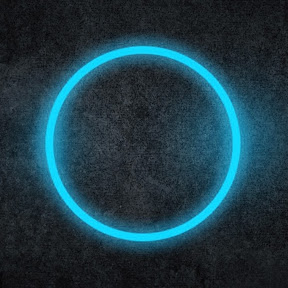I have just watched this video and in it 2 things are said that made my Linux newbie heart sink:
- Debian 13 is not going to get the latest versions of Nvidia drivers and there are better distros for us.
- Debian in general is not meant to run on the latest hardware.
I am on a regularly upgraded desktop tower gaming PC and currently I have an Nvidia card and an Intel CPU (which, I know, even just because of the mobo chipset is not a great choice).
In this conditions and wanting to invest even more in gaming and new hardware in the future, what should I run on, instead of LMDE 6?
If gaming is your main goal. Bazzite or similar should likely be your first target. If you want a more desktop experience. I’d probably recommended vanilla mint. LMDE and Debian are great. But LMDE is a side project, that gets a bit less support and updates. And Debian is about stability over cutting edge anything.
Also worth noting that Debian’s definition of “stability” doesn’t mean “doesn’t crash” even in the slightest. It means “doesn’t change.” That means not changing broken software to be newer working software.
Any non-security bug that exists will stay because new software only ships for backported security updates. So if you have a crashing issue, Debian has no interest in fixing it until the next release. Unchanging is more important than working.
If you don’t have any crashes or bugs popping up, Debian is great, because it won’t introduce crashes or bugs. Nothing unexpected will happen.
By Debian’s definition, the Titanic is now VERY stable, unmoving at the bottom of the ocean.
This is not how Debian works … at … all.
Source: I’ve used it for 25 years.
Agreed. Pushing 20 years now myself. Miss debian-administration.com like Hell
what is the story on that domain why does it lead to a gambling site now
Think StackExchange, but a Debian-centered forum instead. And I didn’t expect the link to appear, as I didn’t give it an explicit https://www/. In the comment. For others, do not click that link. The site’s long dead.
I’ve been told plenty of times that when I had bugs that weren’t getting fixed that “stability means no unexpected changes, not uptime, compile the package yourself if you need it fixed.”
There are plenty of examples of upstream projects asking debian to not package their stuff because they get bug reports for things that were fixed months ago.
Debian does not ship bugfixes. Debian only ships security fixes.
If something works, it’s not going to break. But if something doesn’t work, it’s not going to unless you fix it yourself by going outside of the official packages.
That’s bollocks. Bookworm has received 11 point release updates, and they were definitely not only security updates. Read through the the 12.1 release notes, for example. “Fix playing of custom alarm sounds” does not sound like a security fix, nor a severe issue.
Security updates are released frequently, often just days apart, to individual packages. https://www.debian.org/security/
Point release updates (12.1, 12.2, up to 12.11) are released several months apart. They are thoroughly tested and verified to work together.
Ok? “You only have to wait a few months for this crash to be resolved.” still doesn’t resolve people’s issues.
“Fix playing of custom alarm sounds” doesn’t sound like a severe issue to you, but it was also something that if someone needed, they were forced to wait a few months.
Debian would rather have broken custom alarm sounds for several months, even if it was fixed earlier. Fixing a bug to me lands closer to a security issue than “shipping bleeding edge feature sets”.
It ultimately means if something you need is broken for a non-security reason, it is not being fixed until the next point release. There is a fixed unit of time in which you know your problem will not be resolved.
Packages are individually updated for security fixes. Individual packages are NOT updated for bugfixes.
Did Debian hurt you or something? You’re just raging for the sake of rage.
I’ve also used Debian on my computer for decades and rarely did any application crash. It’s just not a thing. Well… I had FreeCAD crash regularly. But it did that for years and on any distribution. Other than that I did stuff on Debian all day every day and it was just fine.
I’m not raging and I’m not even saying that Debian is bad. I’ve just been told MANY times over the years (including on Lemmy), when I’ve commented about bugs and issues I’ve had on Debian, that stability doesn’t mean “without bugs, always upright” it means “not moving, not changing.”
Debian has a very specific use case. And when people say Debian is stable they mean the base platform isn’t going to change under you and suddenly a config file doesn’t work anymore because Package v2.0 uses a different format.
This is good for people who want a low maintenance system that won’t unexpectedly break due to a random Windows update.
This is good for probably the vast majority of people that fall under “normal” computing habits. If there was a major groundbreaking bug that affected everyone, it probably would have been caught in testing.
This is not good for people who have quirky computing needs or otherwise do things in slightly niche ways, IF a bug shows up. Some bugs are minor annoyances, some require different workflows to get around.
But ultimately, people should know that if they are experiencing an issue with Debian, and it’s not just a configuration issue, they either need to have a solution for themselves (recompiling), or switch distros.
I personally stopped using Debian for my desktop around linux 3.16 days, but I do still use it for my home servers (where I don’t want to be updating things constantly). If Debian works as a desktop platform for you, that’s awesome.
But OP was having issues with Debian. So OP should know that due to Debian’s unchanging nature, it will be quite a while before things start working. And they shouldn’t expect otherwise. And that’s ok, their use case is going to just be a bit more bleeding edge.
Debian is awesome. For servers. For desktop I would use something else that pushes updates more frequently.
My personal opinion ofcourse, use what you like!
I have to agree, rolling release distributions are the greatest recent development in desktop linux because they make the surface area for updates small (fewer packages more frequently, so if something breaks you have fewer places to look). Immutable distros make reverting a bad update foolproof.
I ran bazzite for a while but then my work changed their VPN endpoints to use oauth, which didn’t work on the openvpn2 version available. I switched back to Fedora (which updates pretty frequently, just not constantly) so I could install and use openvpn3. I’m sure I could have figured out a way to get it running by patching it into ostree, but that felt a bit like breaking the rules.
Debian is the underpinning for all of my homelab gear.
Yours is the first comment in this thread that didn’t make me want to simultaneously upvote and downvote.
Pika… pika pi!
Pika… PikaOS?
Pika pi, pi ka, pi chyuu, pika ¡pi! pika chyuu.
Pika pika pi chyu chyu pika pi?
Translation:
Hey! If you like Debian, but want something a bit more cutting edge…
Have you heard of PikaOS?
Roughly, PikaOS is to Debian as Nobara is to Fedora.
Also, I am hungry, can you spare an onigiri?
Debian in general is not meant to run on the latest hardware.
When I see someone on social media claiming Debian is unsuitable for gaming, I know immediately that they don’t know what they’re talking about. I’ve been gaming on different distros since before Steam ran on Linux at all, and on Debian Stable for nearly a decade. This includes my current system, which was built a few months after the GPU was released.
In general, Debian can run just fine on new (Linux-compatible) hardware. If you’re talking about Debian Stable and hardware that was released less than a year ago, then you might have to pull in a newer kernel and/or firmware, but it’s not hard. In most cases, it’s as simple as enabling Debian’s Backports repository and installing the couple of new packages that you need. (You might not even have to do that, since Flatpak and Steam provide updates to much of what games need, but it would be wise to remember Backports anyway just in case you need them some day.)
The main thing to consider is that it’s not completely effortless. It will probably require a little more setup than a game-focused distro would, so if you’re considering Debian for a gaming system, you should know why you want it. For example, maybe you want a very low-maintenance system once it’s up and running. Or maybe Debian’s focus on Free software appeals to you. In such cases, a few extra steps when getting started might be worthwhile. But if you don’t have a specific need that Debian fills, then another distro might be more convenient.
Debian 13 is not going to get the latest versions of Nvidia drivers and there are better distros for us.
I don’t know if that’s true or not. Nvidia has a well-deserved reputation for making their hardware painful on Linux, and although the situation is less bad today than it once was, it’s still not great. If you’re determined to stick with them, then sure, a distro that does the extra work of packaging all of Nvidia’s driver releases might be a better choice for you.
(For what it’s worth, I finally ditched Nvidia in favor of AMD GPUs, and have been very happy with the results.)
If you want newer stuff the non-stable branches of Debian are perfectly usable.
Testing (the upcoming release) should be your first stop. But even Unstable works just as well as most other distros. There might be the occasional issue, but anything serious is generally fixed quickly.
Debian stable is intended for use cases where an update must never change anything that could cause any problem. For the average desktop it’s perfectly fine to have things change or to be mildly inconvenienced every now and then.
I haven’t watched the video. I’ve used Debian as my operating system of choice for over 25 years.
Debian is intended to be Free, it goes to great lengths to achieve this. Many of the popular distributions are based on it as a result.
It has the option to use non-free components like firmware blobs and weird vendor encumbered video drivers.
In addition, Debian runs on a large collection of different hardware platforms and as such is supported across more devices than many other alternatives.
If you run bleeding edge hardware, you have the option of running bleeding edge software within the Debian framework. It comes in flavours: stable, testing and unstable specifically to cater to different requirements.
Pick what you need depending on your use case.
Debian does not get the latest versions of anything. It is designed for, above all, stability, which means changes to the stable branch are greatly delayed while testing is completed.
You can always choose not to use the stable branch.
I’d recommend Fedora if you want stable and modern hardware support.
Isn’t Bazzite based on Fedora?
It is, and it’s amazing for gaming
Honestly I think the utility beyond gaming is totally undersold:
- automatic background updates ( system and flatpaks)
- ujust singular commands for common tasks
- All of what really should be mandatory software out of the box, including some huge QoL extensions
- Bazaar package manager
It really fixes a lot of Linux’s shortcomings, in my opinion.
Yes, I believe so.
yeah but you install your software via cringepak (bloat) or shitty rpm-ostree and nothing is as well documented vs traditional distros
That should be fine since I am planning to put it in its own partition and maybe disk, isolated from my main driver that would be Vanilla Mint, no?
Debian is like that. Mature. The point releases are thoroughly tested for reliability, but the cost is that they can’t include bleeding edge software in the middle of the release cycle. The “stable” branch (currently Trixie) is always lagging behind, and the “testing” branch (Forky, next in line to become “stable”) will be frozen long before it is released.
You might want to try a rolling release distro. Arch Linux or something based on it (EndeavourOS, Garuda, CachyOS), or Debian Sid (the unstable branch).
I’ve been running CachyOS for a couple weeks now and so far it’s been fantastic. Very user friendly and great for gaming, as well as other tasks. I’d highly recommend it.
I run Debian because I don’t like sudden changes. I have a 10-year-old computer that can still run games that are a few years old on low or sometimes medium settings because I have an RX 580. Debian is great for that.
If you just built your PC and want the latest stuff all the time, you can supplement Debian with Flatpaks or 3rd-party repos, but you don’t have to; you can just try a different distro.
You might want to try something like OpenSUSE or Bazzite or CachyOS: they’re rolling release distros, so you get new stuff all the time. Personally, I’m fine with waiting until LMDE 7.
CachyOS has been working issue free for me so far. Update the system once every few days and no bumps at all.
What’s the estimated release for LMDE7?
Mint 22.2 (Ubuntu-based) and Debian Trixie just came out, so I would probably give it another month or two. Some sites say September, but it could take slightly longer.
deleted by creator
+1 for OpenSUSE Tumbleweed.
I had noob problems with so many distros, and Tumbleweed gave me the least problems getting started. Good GUI based control with Discover and YAST. OpenSUSE really doesn’t seem to get recommended enough.
I follow the channel OP linked and he’s had a similarly positive opinion of Tumbleweed (2 years ago).
You clearly have no idea what you are talking about. Debian stable is not the same as Debian testing or Debian unstable.
You want to run bleeding edge hardware, you’ll need to run bleeding edge software, which you’ll find in Debian unstable.
Debian unstable and Debian testing aren’t meant for daily use, I’m not sure why you’re even bringing them up.
That is demonstrably incorrect.
https://wiki.debian.org/DebianUnstable
Debian Unstable (also known by its codename “Sid”) is not a release, but rather the development version of the Debian distribution containing the latest packages that have been introduced into Debian. It is not a “rolling release”, as no release-like quality assurance and integration testing is done on it.
You need some amount of testing because packages do break, the 2 week testing window on arch is really important in making sure your pc can at least boot.
I’ve found CachyOS to be a good fit for me, sounds like I’m in a similar position to you.
Same here! It’s Arch-like in having the latest updates, but I’ve found it to be a lot easier and forgiving than “vanilla” Arch. Been running it for a while now and it’s been a great fit.
If you want something stable but up-to-date, Fedora is a very good option. Plus it has a bunch of “Spins”. The two main ones are Gnome and KDE Plasma, but there is a bunch more, and they’re all officially supported.
Then there’s also Arch. Arch should not be considered stable, but anecdotally I’ve not heard many problems with it in the past few years, so you’d probably be fine. I’d go with EndeavourOS or CatchyOS if you want Arch without the tedious setup process.
Just remember to check archlinux.org before system updates.
Stable doesn’t mean “won’t crash”, or that there’s any guarantee that there are less problems. It just means that there won’t be any big changes during the distro’s lifecycle.
That might mean it crashes less since you won’t see much in terms of new features, or it might mean you have to live with a very annoying bug for a few years because the package maintainers didn’t want to back port the fix for whatever reason.
Regardsless what distro you end up with, do your research before bying new hardware. Any hardware, such as keyboard, usb bluetooth adapter or gaming audio headset might be unsupported or supported poorly, and require out-of-kernel drivers, firmware or propietary vendor software, that work only with some kernel versions or certain distros. There often are options that have great linux support and work with any distro, but you’ll need to find them.
Pick your prefered update interval between LTS, 6 month point release or rolling based on how much time you have for administration. If you need you PC also for work, a rolling distro might break just when you need it the most. After choosing the update interval, pick the distro with chosen update interval you like the most. Say you know and like Debian but need a rolling distro, then Debian unstable might be a good choice for you. You can also run multiple distros and dual-boot.
Special purpose distros such as gaming distros can be a good choice, but they often have less developer resources and tend to die then the few developers lose their interest.
Regardless of your choice of distro, spend some time to configure regular backups.
a rolling distro might break just when you need it the most
Only if you run an update! It’s not random. I only update once every two weeks or so when I know I have time to fix problems if they arise. Easy peesy. Honestly it’s safer than Windows in that sense because Windows pushes updates on you and a broken Windows update did out me in a boot loop, post COVID even.
It’s not a bad piece of advice, rolling is still the least stable, but there are better ways to phrase it.
That works until there is a critical security issue which doesn’t care about your free time, but needs an update right now, and you might not be able to only apply the security fix, because your rolling distro gallops ahead in package version numbers.
Give me older, but stable and boring over that any day. :)
I’ve been running Gentoo and Arch on my primary desktop PC for years back when I was a student and had oodles of free time, but in past decade, Debian is what I need. Including what little gaming I do some evenings.
Maybe just regular Linux Mint then, which follows Ubuntu release schedule.
Try any suse favours, it will surprise you.
I am on the rolling distro (tumbleweed) and it is surprisingly stable, the only time it broke was because of a new Nvidia driver release. But it came with a rollback feature and 2 daya later everything was fixed.
Honestly, just because you can not use debian shouldn’t be any major problem in a modern pc
You should clarify that the roll back takes two seconds and the two days was the wait to upgrade again :D I do love Tumbleweed.
Fuck, you are right. It could be understood in that way.
Debian is a good stable distro but I personally wouldn’t recommend it for desktop home users. There are debian derivatives that do use it as a base and offer more up to date packages.
There are also lots of alternatives that are dedicated rolling release or more frequently updated point release distros.
I often recommend Linux Mint as a good first distro. It’s got a big user base, so lots of support online, and it’s based off Ubuntu which itself is based off Debian, so has a wide range of software already packaged for it. Once you know what you want / like from Linux you could move on or stick with Mint if you like it.
I used to use Mint but I wanted to switch to KDE. You can install KDE with Mint but things are a little janky as the core mint tools are really built for Cinnamon (and GTK). I moved to OpenSuSE Tumbleweed 2+ years ago and like it. I’ve also used Nobara on another device - it’s decent buf have moved away from it after some update issues. Regardless there is a lot of choice out there.
But I’d recommend starting with Mint as a good stable but updatable option. You can use Mint and add in cutting edge Nvidia drivers with relative ease for example.
I would not start with Arch as some others are recommending. It’s a good distro but it’s an involved manual set up and can require a lot of troubleshooting. I’d recommend picking something that is a simpler install and get used to Linux basics first before venturing into distros like Arch.

















